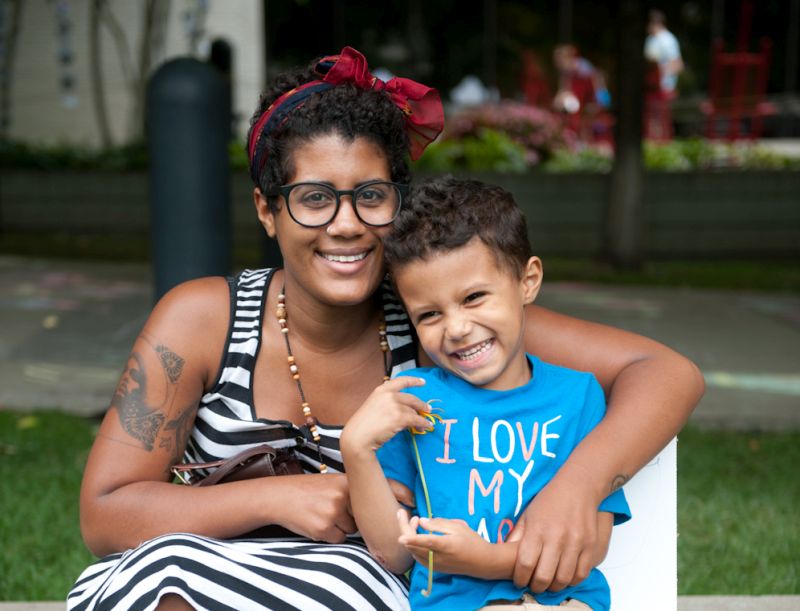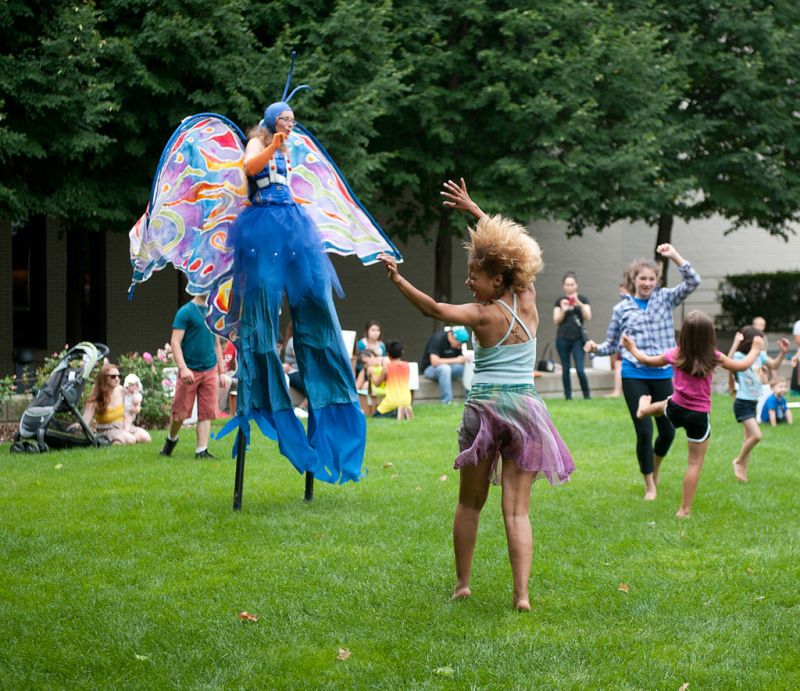
LaDonna Sanders Redmond, host of the Lavender Sun radio show and Family Day: Funk Fest at Mia on August 13.
LaDonna Sanders Redmond was 13—”an impressionable girl,” she says—when she went into the record store in her Chicago neighborhood with a friend and saw a big poster of Prince. It was the late 1970s. Redmond was into Michael Jackson as well as David and Shaun Cassidy, some classic soul and R & B. But now there was Prince.
“We said, ‘He’s really cute!'” Redmond recalls. And then she heard him. In fact, over the next four decades, she saw him perform more times than she can remember, in Chicago and Los Angeles and points in between. “In the ’80s I spent a considerable amount of money following him around on the Purple Rain tour,” she says. “I would always break my neck to see him.”
Now, at 53, Redmond hosts Lavender Sun, a radio tribute to Prince and his musical roots that airs on Fridays at 6 p.m. on KRSM 98.9 FM (repeated on Sundays at 6 p.m.). And she’s been the organizing force—the self-described “curator of artists” behind Funk Fest, a special edition of Mia’s Family Day this upcoming Sunday, August 13, celebrating Prince’s legacy.
The stage line-up includes Jayanthi Kyle, PaviElle, and the Unlimited Next Level Drill & Dance team, with MCs from KMOJ and 105 The Vibe. There will be DJs and face-painting and art-making and a special preview of photographs taken of Prince in 1977, just before he became an international star.
A Superfan in Minneapolis
 Redmond moved to Minnesota seven years ago, after beginning her career in Chicago as a community organizer around issues of violence, substance abuse, and access to healthy food (she was named a Responsibility Pioneer by TIME magazine, and recorded a popular TEDx talk about food justice). And for a long time she regularly commuted past Paisley Park, Prince’s studio and home in Chanhassen, without realizing it.
Redmond moved to Minnesota seven years ago, after beginning her career in Chicago as a community organizer around issues of violence, substance abuse, and access to healthy food (she was named a Responsibility Pioneer by TIME magazine, and recorded a popular TEDx talk about food justice). And for a long time she regularly commuted past Paisley Park, Prince’s studio and home in Chanhassen, without realizing it.
Her fascination with Prince had always been from afar, and after moving to his backyard it took a while for her to put his story together, to realize where he grew up and how much he was a still a part of the community in spirit and in person.
Redmond was at work last April, at the Seward Co-op, when she got a push notification on her phone from CNN or TMZ saying a person was found dead at Paisley Park. Later, she received a text from her sister: Prince is dead. She took the rest of the day off.
She went to her gym, which happens to be frequented by people who knew Prince well: his bodyguards, people who grew up with him—men who are six-foot-three mountains of muscle, she says. “They were just lying on the floor, crying,” she says. “They were devastated. And so was I. Profound grief.”
When the tribute concerts began, Redmond was having back problems that later required surgery, and was in no shape to stand for a show at 2 in the morning. So she decided to host her own. Just a week after his death, she threw a Prince block party at Sabathani Community Center in south Minneapolis, the site formerly known as Bryant Junior High School, where Prince went to school and quietly stayed involved after his rise to fame.
Redmond sought to saturate that party—as well as Funk Fest—with many of the creative outlets Prince had explored, the broad spectrum of his musical influences (funk, R&B, hip-hop) but also dance, DJing, showmanship. And she wanted it accessible to kids.
“When I think about Prince, I’m reminded that his story didn’t begin at 18, when he became famous, that at one point he was a child,” Redmond says. “He was a little boy who apparently walked around town with his guitar on his back, finding these little enclaves to play music. It was probably a respite for him, given how tumultuous his childhood was. And when I think about the stress that young people are going through right now, that’s part of what I’m trying to address with Funk Fest—using the creative legacy of Prince to connect with young people who are lookingto explore their own creativity.
“When I was a teenager, I didn’t see the struggle that Prince was having with his identity, his refusal to allow other people to name him or his decision to not even name himself. It was only later that I realized he had made the decision to be who he wanted to be.”


